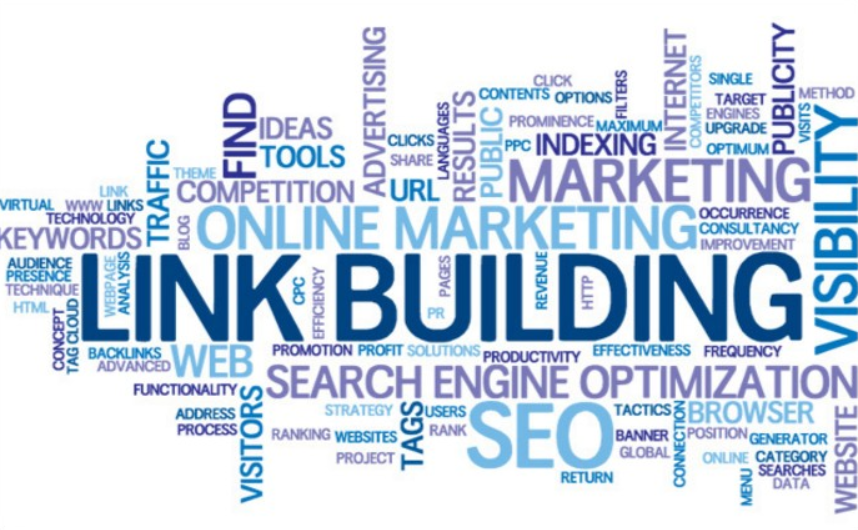You’ve always been passionate about SEO, so you finally decided to start your own agency. But running an agency on your own is a whole new ballgame.
Ask any successful SEO agency owner, and they will tell you that it’s not all rainbows and butterflies. There are quite a few challenges that come with owning an agency.
You may already have experienced some bumps in the road leading up to your venture’s launch and are rightfully worried about the future pitfalls you could encounter. For example, there are a lot of outdated SEO techniques that are no longer effective, and keeping up with the latest SEO trends is a must. But don’t worry. By taking notes from the mistakes of others who have already gone down that road before you, many of the potential pitfalls can be avoided.
In this article, we will discuss the six most common mistakes SEO agencies make and how you can avoid them.
Mistake #1 Not understanding your client’s expectations
Where can you go wrong?
SEO agencies spend a lot of time finding out what their client’s customers are searching for. But very few spend as much looking into what their own clients want. Oftentimes, agencies assume they know what clients expect without taking the time to consider their specific goals. This leads to a disconnect between what clients want and what agencies deliver, resulting in frustration and wasted effort on both sides.
How can you fix it?
Not considering the needs of their clients is one of the main reasons SEO agencies end up with a bad reputation. If you want to avoid such a fate, take the following steps:
- Set up an effective client onboarding process. When taking on new clients, it’s crucial to put a solid onboarding process in place. This will help you analyze the client’s needs and objectives, both in the short and long term. That way, you’ll be better equipped to provide them with the service they need.
- Communicate openly and frequently. Keep the lines of communication open at all times. Discuss your strategies and reasoning with your client and be sure to solicit feedback every so often. It will ensure that you are both on the same page and that the client feels like an active partner throughout the process.
- Continually follow up with the client. You can’t rest on your laurels just because you have a happy client at present. Remember to check in with your customers regularly to confirm you’re meeting their expectations and explore what else you can do for them.
No two clients are alike, so it’s vital to take the time to learn about your client’s business and what their goals are for SEO before starting any work. Only then can you develop a tailored plan and strategy that stands a chance of succeeding.
Mistake #2 Ignoring the need for a proper pricing scheme

Where can you go wrong?
Pricing is a crucial aspect of running a successful agency, yet many newbie owners avoid discussing it until they absolutely need to. This is a mistake that can come back to bite them later on down the road. A wrong pricing model could send SEO agencies down an unsustainable path of unjust payments, unnecessary back and forth with clients on what you’re owed, and a whole lot of chaos in general.
How can you fix it?
The best way to avoid this scenario is to establish a viable pricing strategy from the beginning. One that is informed by the value your service provides and what your competitors charge. The right pricing strategy will keep you from making short-term decisions that could prove detrimental to your long-term bottom line. If you’re not sure how to set your prices, here are some tips to get you started:
- Consider your overhead costs. Make sure your prices are high enough to cover all the costs associated with providing your services, such as employee salaries, tools and software, rent, and so on. Only then can you arrive at a price that is fair to both you and your clients.
- Compare your prices to your competitors. Take a look at what your competitors are quoting and ensure that you are in line with that. Try to find a balance between what you’re worth and what the market will bear. Do some research to find out what other SEO agencies in your area are charging. This will give you a good starting point.
- Ensure that you’re making a profit. You also want to make certain you are charging a price that permits you to turn a profit. If you’re not making a profit on each project, you’re not going to be in business for very long.
- Review and revise your pricing models periodically. Once you’ve settled on a pricing model, it’s important to revisit it on a regular basis and make sure it’s still working for you. As your business grows and changes, your pricing strategy should evolve along with it.
Arming your agency with an appropriate pricing model early on can spare you a great deal of inconvenience down the road. So if you’re just starting out, put in some effort to set up a proper pricing system — it’ll pay off in the end!
Mistake #3 Not managing client expectations
Where can you go wrong?
Many SEO agency owners fail to realize that their clients are often in the dark about what exactly SEO entails. As a result, clients end up setting unrealistic standards their agency simply cannot meet. This can lead to tension and mistrust between the two parties, ultimately causing damage to an otherwise good working relationship.
How can you fix it?
In the SEO business, it’s particularly important to set realistic expectations for your clients. This means being honest about the potential results of their SEO campaign and what ranking improvements they can expect to see. Here are some of the most frequent erroneous assumptions made about SEOs and SEO businesses that, if left unaddressed, can cause a breakdown in communication between you and your client:
- Pace of ranking gains. Although SEO specialists can make some predictions about how long it will take for a given keyword to improve its ranking, many factors can influence this timeline. For example, if there are others going after similar keywords with more resources, it may take longer for that particular keyword to rank highly. Similarly, rising 10 positions is significantly faster when you start on the 10th page than jumping 10 places when you’re on the 2nd page of search results.
- Number of keywords. Clients often mistakenly believe that the more keywords their agency targets, the better. However, it doesn’t always work that way. The more keywords a client targets, the fewer resources the agency can assign to working on each of them, and the harder it becomes to rank well for any of them. It’s therefore important to explain to your clients that relevancy is more important than quantity when it comes to keywords.
- Quantity of backlinks. One of the most common misconceptions is that more links equal better results. That’s just not true. The quality of links matters most, not quantity. Thus, when clients start placing too much on the cost of every link and start looking for cheaper solutions, trouble is bound to follow. Building backlinks is an important part of any SEO campaign, and companies should be transparent with their clients about the progress and success of these efforts.
In short, be honest about what your SEO agency can do and what it cannot do. Pushing the limits of what is possible is a guaranteed way to lose client confidence. By being upfront and setting achievable goals, you can build trust with your clients and help them see the true value in SEO.
Mistake #4 Not knowing your agency’s limits
Where can you go wrong?
Novice SEO companies are not always aware of their limitations, which can cause them to get burned out and offer low-quality work. Because of their ignorance, these companies often take on more clients than they can handle, which leads to a decline in the quality of their services.
How can you fix it?
The pursuit of too many goals at the same time can lead to overworked employees, unhappy clients, and general mayhem. Here are some tips to keep your limitations in check:
- Don’t be afraid to say “no.” It’s okay to refuse a project if you know your agency isn’t the right fit. It’s better to turn down a project than to take on something you can’t handle.
- Delegate or outsource tasks that can be done by someone else. There’s no shame in admitting that you need help. Taking this step will help lighten your workload and free up time for more important tasks.
- Stay organized and keep track of your deadlines. By doing so, you will avoid stress and ensure that all of your projects are completed on time.
- Set realistic deadlines and expectations for both yourself and your team. When you try to get too much done in too little time, it will only lead to frustration and subpar results.
- Keep your employees engaged. All work and no play is no fun. Keep your team morale and commitment in good shape by creating an employee engagement action plan. A positive work environment and good leadership don’t go far enough. You need a model to help you consistently foster high performance in your team.
There’s only so much time in the day, and only so much an agency can manage without becoming overwhelmed. It’s vital to stay within manageable limits in order to maintain quality work and a healthy business. Understanding these boundaries will help agencies to better plan and execute their campaigns, and make them more successful in the long run.
Mistake #5 Not preparing a resource plan

Where can you go wrong?
SEO can be a resource-intensive process, and agencies that don’t have a plan for acquiring and managing these resources can quickly find themselves in over their heads. This is often the case with small agencies that try to take on too much work without adequate staff or budget.
How can you fix it?
The first step is to assess your needs and identify the resources required to complete your projects. Once you have a good understanding of what you need, you can develop a plan for acquiring these resources. There are several ways to do this, including:
- Hiring in-house staff. This is often the most expensive option, but it can be worth it if you have the budget and the need for full-time employees.
- Using outsourcing services. This is a great option for agencies that need extra help but can’t afford to hire full-time staff. Many reputable companies offer affordable outsourcing services.
- Partnering with other agencies. If you don’t have the specialized resources to tackle a project internally, partnering with another agency can be a great solution.
Devising an internal resource plan is critical for any SEO agency. Without one, it can become difficult to procure and schedule the resources needed to finish projects, and your business will inevitably suffer because of it. Simply put, resource planning allows you to work around resource limitations and manage your personnel more productively.
Mistake #6 Failing to equip your SEO tool chest with proper technological gear
Where can you go wrong?
In today’s competitive business landscape, it’s more important than ever to have a cutting-edge tech stack that will help you stay ahead of the curve. Many agencies, however, do not allocate enough resources towards this, and as a result, they wind up stuck with an inefficient set of tools that is not conducive to their operations.
How can you fix it?
As a seasoned marketer, you’ll be quite familiar with the rigorous standards nearly every client has for productivity. The pressure to be both timely and high-quality can be daunting, but it is possible to achieve both if you have the right tools at your disposal. Listed below are a few essential tools that every SEO agency should have in their tech stack:
- Keyword research tools. Any successful SEO campaign starts with in-depth keyword research. By utilizing reliable keyword research tools, you can ensure that your next SEO campaign gets off to a flying start.
- Content planning and optimization platforms. As you probably know, it takes a great deal of work to generate quality content. That’s where SEO content planning and optimization tools come in handy. Think outside the box here, too. For example, you could find influencers to help you create, schedule, and publish content and then promote it on social media, further increasing traffic and strengthening your backlinks.
- Rank tracking tools. A SERP position tracking tool is a valuable resource for any SEO service. By examining the search terms that your client’s site ranks for, you can stay abreast of how well your SEO services are performing and uncover new avenues for growth.
- Project management apps. Ensuring that every member of your team achieves the desired results by the designated deadline is a challenge in itself. But luckily, there are project management tools like Wrike and Monday that can help streamline operations and keep everyone on track.
- Reporting and analytics software. There are many SEO reporting software options available that can help you track various data sources, visualize the data with helpful graphs and charts, and create reports to share with clients.
- Communication tools. SEO campaigns require a great deal of investment and are often time-consuming. Therefore, agencies need to keep their clients up-to-date and informed of their progress. Various tools are available to assist in this endeavor, from video conferencing tools such as Zoom to messaging platforms like Slack.
- Workflow automation systems. Automation is crucial for companies wishing to systematically improve procedures and boost productivity. Workflow automation tools like Zapier can help you keep pace with the changing demands of clients and get things done faster.
Just like any business, technology is a major player in the success of SEO campaign implementation and management. By having the above-mentioned tools in your arsenal, you’ll be able to provide your clients with well-rounded and effective SEO strategies.
To wrap up
Running an SEO agency presents a broad set of challenges, but if you’re up for the task, it can be an incredibly rewarding experience. You’ll have the opportunity to call the shots, be your own boss, and make a real difference in your clients’ businesses. However, there are some mistakes that many new agency owners make that can hurt their business before it has a chance to take off. Hopefully, this list provides you with enough insight on how to avoid typical pitfalls so you know what to watch out for as you move forward.



